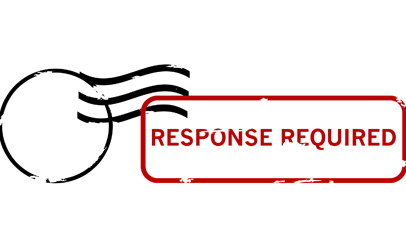![]()
The latest batch of warning letters posted by the U.S. Food and Drug Administration (FDA) were addressed to a nut processor, a cheese manufacturer, four dairies, and two seafood importers. In the most unusual letter of the group, FDA wrote that the president of Gold State Nut LLC in Biggs, CA, was observed handling a bearded dragon in his office and then touching shelled walnuts afterward without washing his hands. Three of the 100 environmental swabs FDA collected from the nut processing facility last spring tested positive for Salmonella, according to the warning letter. All cracked walnuts at the facility pass under a cross-beam, where one positive sample was taken, FDA stated. Investigators also observed debris falling from this cross-beam directly onto the belt below where the walnuts exit the cracker during operation. Two of the positive samples came from inside a reptile cage the company’s president had in his office, the letter noted. “During an interview in your office located within the packing facility, our investigators observed you holding a bearded dragon reptile and peeling off its skin with your bare hands,” FDA wrote. “Following this interview, you were seen touching shelled walnut meats with your bare hands, without first washing your hands. Reptiles are known reservoirs for Salmonella.” Gold State Nut’s Current Good Manufacturing Practice (CGMP) regulation violations included handling the reptile and then touching food without washing hands, a heavy build-up of moist debris on the underside of the conveyor belt carrying shelled walnut meats from sorting to final packaging, no toilet paper or effective means for drying hands available in the employee restroom, and debris falling from the cross-beam onto a belt carrying walnuts below. An environmental sample collected this past May from the Farmo Foods Inc. cheese manufacturing facility (doing business as Belfiore Cheese) in Berkeley, CA, tested positive for Listeria monocytogenes, which FDA said “demonstrates that your sanitation efforts are inadequate to effectively control pathogens in your facility.” The company was warned about using pails to scoop ricotta out of vats that had been placed on the wet production room floor, where the L. monocytogenes was found. Some of the other CGMP violations investigators observed were failure to take effective measures to exclude pests from the processing area, failure to maintain buildings and physical facilities in repair sufficient to prevent food from becoming adulterated, failure to properly store equipment and remove litter and waste, and failure to provide hand-washing and hand-sanitizing facilities at each location in the plant where needed. New York seafood importer establishment Misono Food Ltd. was cited for failing to implement an affirmative step to make sure that the refrigerated vacuum-packaged dried tuna roe the company imports was processed in accordance with the seafood HACCP regulations. FDA informed One Chang Trading Inc. of Brooklyn, NY, that it was failing to implement an affirmative step to make sure that the frozen dried anchovy the company imports has been processed in accordance with the seafood HACCP regulations. Rahm Dairy LLC in Colby, WI, sold a dairy cow to be slaughtered for food which was found to have desfuroylceftiofur (marker residue for ceftiofur) at 5.98 parts per million (ppm) in its kidney tissue. The warning letter noted that FDA has established a tolerance of 0.4 ppm desfuroylceftiofur in the kidney tissue of cattle. Parker’s Dairy Inc. in Granville, NY, sold a bob veal calf to be slaughtered for food which was found to have 27.89 ppm of neomycin residue in its kidney, FDA stated. And Hillcrest Homestead LLC in Caneadea, NY, sold a calf to be slaughtered for food which was found to have 30.53 ppm of neomycin in the kidney tissue, according to that warning letter. FDA has established a tolerance of 7.2 ppm for residues of neomycin in the kidney tissue of cattle, but there is no acceptable level of residue associated with the use of the drug in veal calves. Cannon Farms LLC in Shelley, ID, sold a cow to be slaughtered for food which was found to have penicillin at 0.264 ppm in its kidney tissue. FDA has established a tolerance of 0.05 ppm for residues of penicillin in the edible tissues of cattle, the agency noted. In each case, the presence of the drug residues in edible tissue of the animals caused the food to be adulterated. Recipients of FDA warning letters have 15 working days from receipt to outline specific steps they have taken to come into compliance with the law. (To sign up for a free subscription to Food Safety News, click here.)

